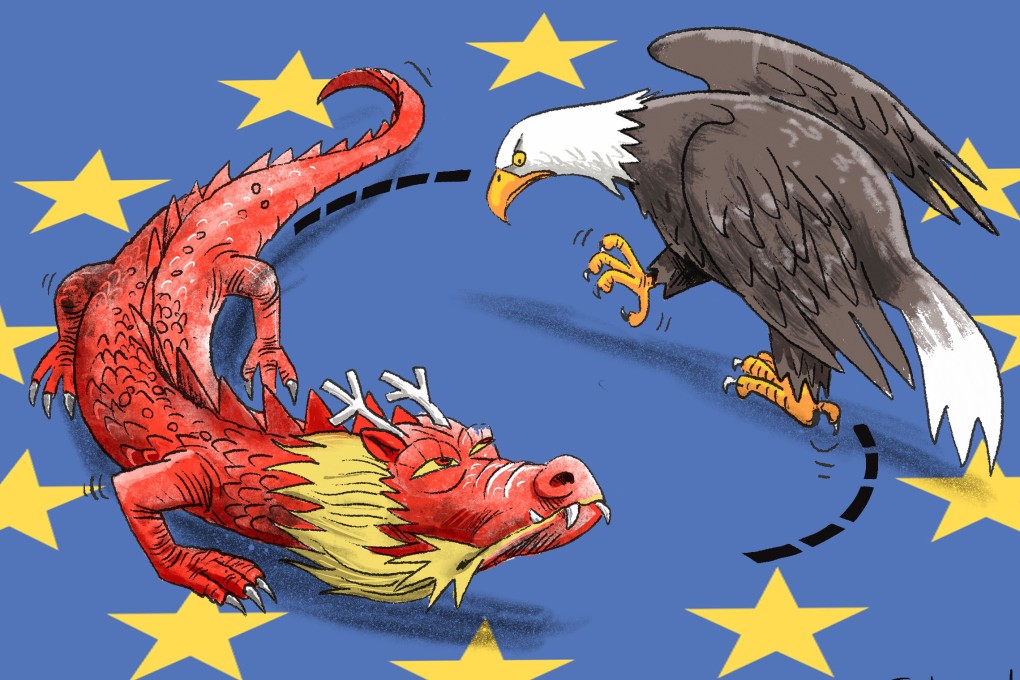Advertisement
Opinion | The true battleground in the US-China cold war will be in Europe
- The competition between the two giants won’t be in the Global South, where the US has already lost out to China, while in the Indo-Pacific, few nations want to take sides
- Rather, it will be in Europe, where the US has most of its allies and China is the largest trading partner
Reading Time:4 minutes
Why you can trust SCMP
31

French president Charles de Gaulle once said: “It will not be any European statesman who will unite Europe: Europe will be united by the Chinese.” He must be turning in his grave to see how Europe has been divided, rather than united, by the Chinese.
Advertisement
On a recent joint visit to China to show European solidarity, president of the European Commission Ursula von der Leyen and French President Emmanuel Macron, however, seemed poles apart. Von der Leyen criticised China’s friendship with Russia and spoke of a need to “de-risk”. Macron said Europe must avoid being drawn into any US-China conflict over Taiwan, and has maintained that Europe should not become a “vassal”.
Europe’s strategic autonomy lies in how it deals with major powers such as the United States, Russia and China independently, but it won’t happen any time soon. With war raging in Ukraine, Europe is more reliant than ever on America. In reaction to Macron’s comments, US Senator Marco Rubio said if Europe would not pick a side between the US and China over Taiwan, then maybe the US should focus on Taiwan and let the Europeans handle Ukraine themselves.
However long the Ukraine war lasts, the likely outcome is an armistice. Last year, Russia declared the incorporation of Luhansk, Donetsk, Kherson and Zaporizhzhia. Although Russia can hardly have full control of the four provinces, it must have some gains to justify its war. That leaves Ukraine with a nightmare scenario: no Nato membership and the loss of further territory after Crimea.
Europe cannot possibly grow its strategic autonomy while in the shadow of Nato, the transatlantic security alliance. Macron famously said Nato was “brain-dead”. Supporters can point to Finland’s entry to say Nato is becoming more popular, but Macron is still right. The war brilliantly illustrates Nato’s Catch-22: no matter how strong, Nato does not dare launch an attack on the world’s largest nuclear-armed state, but neither can it claim defence – 31 countries ganging up on one looks ludicrous.
Advertisement
Nato may survive and even celebrate its centenary, but so what if it merely becomes irrelevant? The Anglo-Portuguese Alliance is the world’s oldest, at over 600 years, but how many people know, and who really cares?

Advertisement
